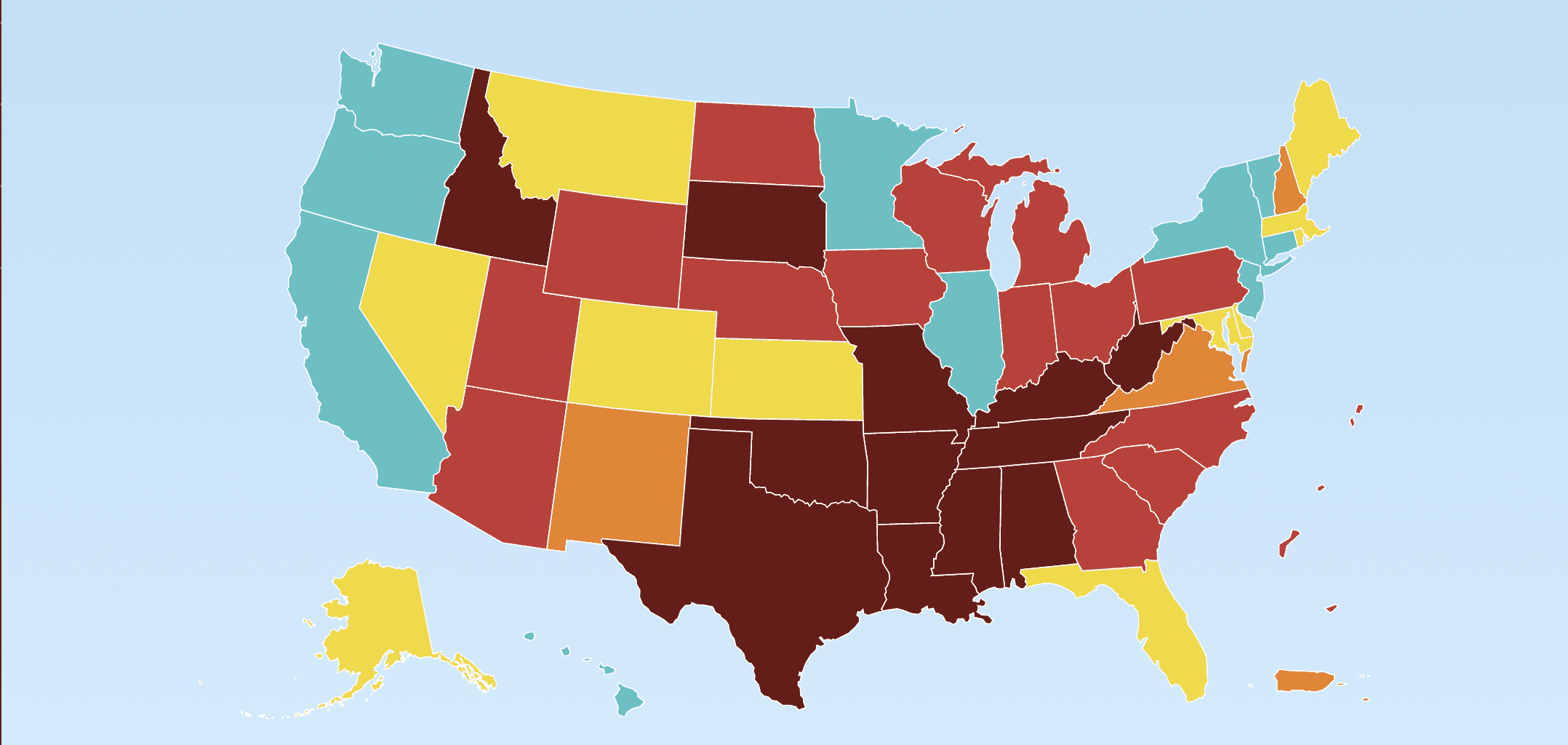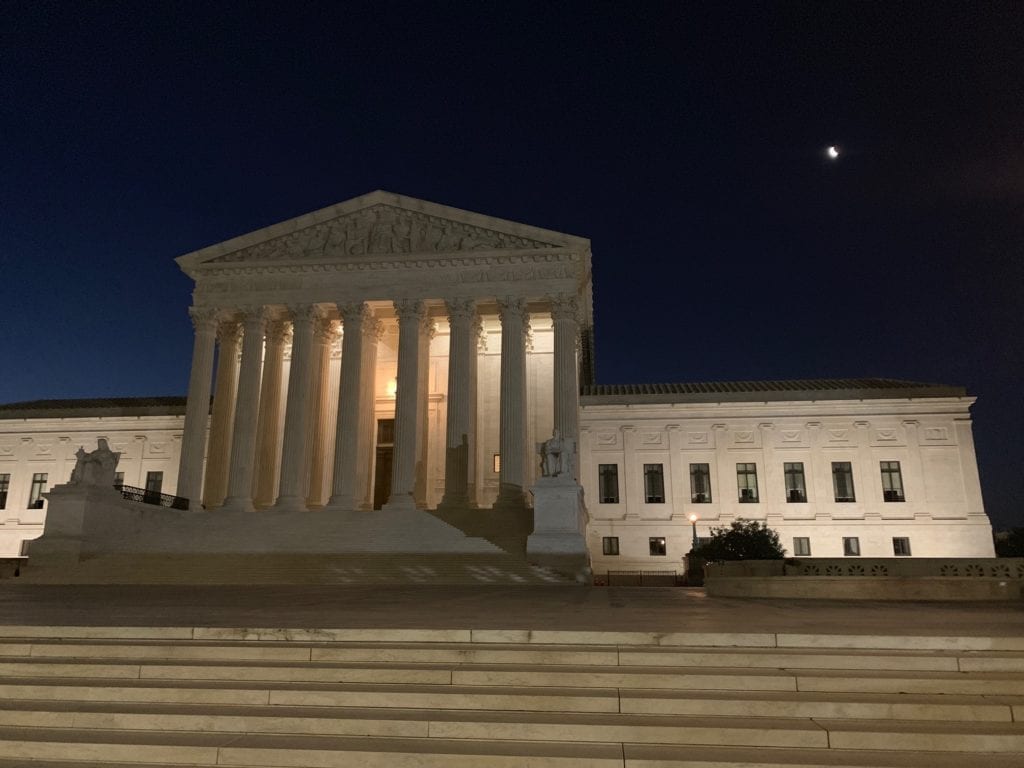Texas Court Rejects Vigilante Lawsuit Against Doctor
Court rules a citizen not harmed can’t sue doctor who violated Texas’s S.B. 8 abortion ban.

More than nine months before the U.S. Supreme Court overturned Roe v. Wade, the state of Texas denied Texans their right to abortion by enacting a “vigilante” law banning abortion after approximately six weeks of pregnancy.
The law, S.B. 8, incentivizes individuals to bring costly and harassing lawsuits against anyone who provides abortion care or assists someone in obtaining an abortion in violation of the ban. The law took effect September 1, 2021.
Yesterday, a Texas court ruled from the bench that a bystander who is not directly impacted by the abortion service provided cannot sue the abortion provider under S.B. 8. Such a bystander, the court ruled, does not have legal standing. The ruling sets an important precedent limiting the application of the vigilante law.
The ruling came in Gomez v. Braid, a case brought by an Illinois resident against Dr. Alan Braid, a physician who violated S.B. 8 when he provided a patient with abortion care beyond the law’s six-week limit. The Center for Reproductive Rights defended Dr. Braid in the lawsuit, together with co-counsel at Debevoise & Plimpton LLP and Susman Godfrey L.L.P.
This is the first and only case filed against a provider under S.B. 8 to be resolved by a court.
“Why I violated Texas’s extreme abortion ban.”
“The significance of today’s decision is that even though S.B. 8 says anyone can sue to enforce the abortion ban against someone who provides or assists a prohibited abortion, the Texas Constitution limits who can sue in Texas courts to only people with injuries—not unharmed bounty hunters,” said Marc Hearron, senior counsel at the Center.
“When I provided my patient with the care she needed last year, I was doing my duty as a physician,” said Dr. Braid. “It is heartbreaking that Texans still can’t get essential health care in their home state and that providers are left afraid to do their jobs. Though we were forced to close our Texas clinic, I will continue serving patients across the region with the care they deserve at new clinics in Illinois and New Mexico.”
Shortly after he provided abortion care in September 2021 in violation of S.B. 8, Dr. Braid wrote an op-ed for The Washington Post titled “Why I violated Texas’s extreme abortion ban.” Dr. Braid described seeing Texas teenagers die from illegal abortions before the Supreme Court recognized abortion as a constitutional right in Roe v. Wade. “For me, it is 1972 all over again,” said Dr. Braid.
The Center’s Fight Against Texas’s Vigilante Abortion Ban
The Center and its partners first filed a case against S.B. 8 in July 2021 in an effort to block the law from taking effect that September. The case, Whole Woman’s Health et al. v. Jackson et al., was filed in the U.S. District Court for the Western District of Texas on behalf of Texas abortion providers led by Whole Woman’s Health, doctors, clinic staff, abortion funds, support networks, and clergy members.
Since S.B. 8 was designed to skirt judicial review and shift enforcement to private individuals, numerous parties who potentially had a role in enforcing the law—including state court trial judges and clerks, medical and nursing boards, the Texas Attorney General, and others—were sued.
The case eventually reached the U.S. Supreme Court. On December 10, 2021—even as Roe v. Wade still stood—the U.S. Supreme Court issued its ruling, refusing to block the law and its vigilante scheme.
Commenting about the ruling, Hearron, who argued the case before the Court, said, “The Supreme Court has ruled that federal courts are powerless to protect constitutional rights in the face of a devious state scheme that hands over state enforcement power to private citizens. The Court has effectively endorsed Texas’s efforts to subvert the U.S. Constitution.”
Where do abortion laws stand now?
Abortion is Now Illegal in Texas
Abortion is currently illegal in Texas in nearly all circumstances, since the state’s “trigger” abortion ban took effect in August 2022, after Roe was overturned. The ban prohibits nearly all abortions and carries severe criminal penalties imposed on those who violate the law. Under the law, doctors could face up to 99 years in prison for providing a prohibited abortion.
With abortion banned entirely in 12 states, including many across the South, Texans face the longest travel times in the country as they are forced to drive an average of over seven hours one-way to reach an abortion provider outside of the state. Pregnant Texans are also being denied care at hospitals in the state despite facing life-threatening conditions. Since S.B. 8 went into effect, maternal morbidity has increased in Texas hospitals. Many other Texans have been unable to travel out of state and have been forced to carry their pregnancies to term or attempt an abortion on their own.
The impact has fallen hardest on communities that already face significant barriers to accessing health care, including Black and brown communities and people living on low incomes.



